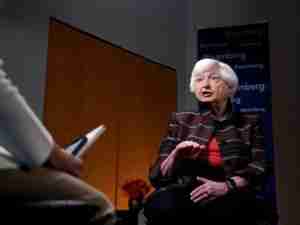UTC Overseas renews call for industry pressure to reauthorize the U.S. EX-IM Bank
posted by AJOT | Sep 16 2015 at 08:27 AM | International Trade
Houston, TX - On the heels of Tuesday’s announcement by General Electric Co. that it is moving 500 U.S. power turbine manufacturing jobs to Europe and China, UTC Overseas, a Houston-based industry leader in global cargo logistics planning and implementation, called on industry colleagues and U.S. exporters to push for Congressional re-authorization for the nation’s Export-Import (Ex-Im) Bank. Despite strong Congressional support, explains UTC Executive Vice President Marco Poisler, renewal of the agency’s budget lapsed in the rush to the August recess.
GE said its decision was made because it is now bidding on $11 billion worth of international power projects requiring credit agency financing, but can no longer access Ex-Im financing guarantees. France, Hungary and China agreed to provide them lines of credit for global power project bids in exchange for moving production to their countries from plants in South Carolina, New York, Texas and Maine.
“Despite Congressional failure to re-authorize the Bank earlier this year, we remain committed to working for its renewal,” Poisler said. “GE’s decision clearly illustrates the warnings we have raised with our representatives: Without a national agency to provide loan guarantees and technical expertise to U.S. exporters, we will lose significant overseas sales and American jobs to other nations who continue to operate similar programs and recognize their importance in the stimulation of international trade.”
Alan Favicchio, Oil & Gas Director for UTC Overseas, adds that recent meetings he has held with Congressmen and Senators, reveals that support for the bank remains strong and crosses ideological lines. “They recognize the important bottom line involved and that is global competitiveness, business and jobs.”
Favicchio said opponents, while a minority, have used parliamentary rules to block a full vote on the measure. “Supporters in Congress say they urgently need renewed pressure from companies most directly affected to let their representatives know how closure of Ex-IM will impact them in terms of lost business and good jobs for American workers.”
“The Bank has worked quietly and effectively for over eight decades to promote U.S exports by providing loan guarantees for projects that meet their exacting standards. Opponents have claim U.S. banks can take on the role of Ex-Im. In fact, many of the contracts involve projects in countries with limited fiscal resources and U.S. banks simply will not finance them without Ex-Im guarantees.”
“Opponents also claim that Ex-Im is just a subsidy for large U.S. corporations with global export business,” Favicchio continues. “This ignores the fact that big companies, like GE, rely upon huge networks of small-to-mid-sized suppliers nationwide, and that the vast majority of Ex-Im guarantees involve smaller U.S. companies and their customers.
“There are major business opportunities for U.S. exporters in third-world countries, especially in infrastructure, power generation and distribution, industrial manufacturing, and agricultural development. But if we don’t renew our Ex-Im Bank, we will lose jobs, businesses and influence worldwide to foreign competition willing to provide the loan guarantees we presently cannot.”
“Even if you, your employees, colleagues, suppliers and customers have already reached out to your Congressional delegation on this issue, we strongly urge you to renew that effort immediately,” Poisler and Favicchio conclude. “Congress needs to hear from you now to get this issue back on the agenda and a new budget authorized for the Bank as soon as possible. If we don’t, it is demonstrably clear that American business, large and small, are going to lose jobs and business to foreign competitors whose governments are already demonstrating their willingness to use their own financing agencies to take them from us.”








